How our effort is organized
Developing and producing the Open Energy Outlook is a big effort with many contributors. The core team is primarily responsible for conducting the model-based effort and producing the Open Energy Outlook report.
The additional teams listed below are committed to formally advising the core team and attending annual workshops to help set the research agenda. We also welcome contributions from the broader community and track community participants and their contributions on GitHub. As articulated in this Joule piece, we are pioneering a new distributed teams approach to energy systems modeling.
Core team
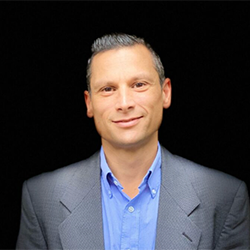
Joe DeCarolis, Carnegie Mellon University
Joseph F. DeCarolis is an internationally-recognized leader with technical expertise in energy systems, climate change, computing, and public policy and the head of the Department of Enginering and Public Policy at Carnegie Mellon University.
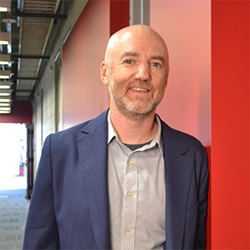
Mike Blackhurst, Carnegie Mellon University
Mike Blackhurst is the Executive Director of the Open Energy Outlook. Mike’s research relates to integrating engineering and social science methods to improve how technology is represented in policy decisions.
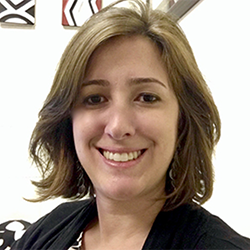
Paulina Jaramillo, Carnegie Mellon University
Paulina is involved in key multi-disciplinary research projects to better understand the social, economic and environmental implications of energy consumption and the public policy tools that can be used to support sustainable energy development and consumption.
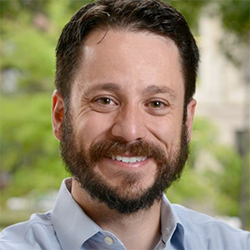
Jeremiah Johnson, NC State University
Jeremiah uses systems methods to evaluate the environmental impacts of changes to the power system, including those driven by technology (such as the integration of wind power, solar photovoltaics and energy storage) and policy.
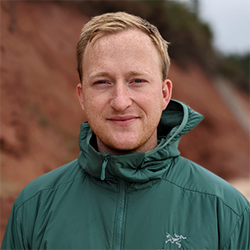
Cameron Wade, Sutubra Research
Cameron Wade is the Founder and Principal of Sutubra Research, specializing in the development and application of energy system optimization models to support strategic decision-making in both the public and private sectors.
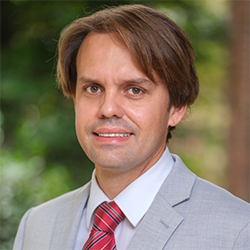
Anderson Rodrigo de Queiroz, NC State University
Anderson's research aims to develop and test different methodologies to deal with decision-making under uncertainty as well as the use of data-driven predictive analytics techniques to enable better quality decisions in clean and sustainable systems. He develops computational machinery using mathematical optimization solvers and parallel programming to solve electric and energy systems planning and operations problems.
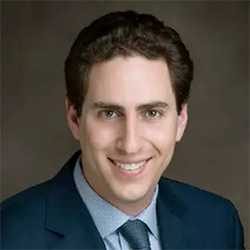
Daniel Posen, University of Toronto
Daniel’s research addresses system-scale environmental sustainability analysis by drawing on a range of tools from engineering, science, economics, and public policy to provide quantitative analysis to guide environmental policy and decision making. His research is grounded in life cycle assessment and energy modeling with applications to a wide range of systems including fuel and chemical production, biobased products, electric vehicles and vehicle fleets, electricity generation, and infrastructure systems.
OEO students and postdoctoral fellows
Davey Elder, University of Toronto
Davey researches and develops novel methods of energy systems modelling to assess emerging technologies like electrolytic hydrogen and direct-air carbon capture under deep uncertainty of future cost and performance of those technologies. His work seeks to discover generalisable insights about deployment and operation strategy of these new technology pathways to inform decisive policy-making today in spite of uncertain future outcomes. He also works on modelling methods to assess the fidelity of dimensionality-reduced models, especially for the selection of representative periods in power systems models.
Catalina Moreno Lopez, Carnegie Mellon University
Catalina researches decarbonization strategies for the Global South through energy systems modeling. Using Colombia as a case study, her work evaluates energy supply scenarios, assesses technology integration, and combines these insights with site selection strategies for technologies requiring underground carbon sequestration, including Direct Air Capture (DAC) and Bioenergy with Carbon Capture and Storage (BECCS). Catalina's research aims to contribute to aligning carbon management strategies with regional socio-economic priorities in low-carbon economies in the Global South.
Jethro Ssengonzi, North Carolina State University
Jethro’s research focuses on assessing the reliability of grid operations under increasing levels of variable renewables. He has worked on quantifying renewable capacity credits and observing their impact on resource adequacy by use of Temoa. Jethro is ultimately driven by addressing infrastructure problems that holistically affect societal quality of life and efficiency in the workplace.
Rob Miller, North Carolina State University
Rob’s research explores integrating wave energy converters (WECs) and ocean current kites with offshore wind to enhance renewable energy generation and optimize marine space utilization. Using statistical analysis and modeling, he assesses the feasibility of WEC deployment along North Carolina’s coast, working with teams who develop optimized designs for kites and WECs to improve energy density and reduce costs. Through portfolio optimization, his work identifies the best locations and configurations for these technologies, balancing resource potential, system efficiency, and economic feasibility.
Shahid Hossaini, University of Toronto
Shahid’s research seeks to quantify the material intensity of different energy futures. In particular, the work aims to assess 1) how embodied carbon from bulk materials (e.g., steel, cement) and energy intensive processes (e.g., electric vehicle and grid-scale battery manufacturing) influence optimal energy investments under greenhouse gas emission limits, and 2) how to design a future energy system that accounts for potential bottlenecks induced by critical mineral constraints.
Thiago Rodrigues, University of Toronto
Thiago is a postdoctoral fellow in the Department of Civil and Mineral Engineering at the University of Toronto. His research focuses on representing fuel systems in energy system models. He investigates the impacts of petroleum refining flexibility (or inflexibility) on energy decarbonization pathways to assess cross-sectoral interactions driven by the availability of energy carriers. His work informs decision-makers about the need for greater coordination across end-use technologies to maintain appropriate ratios (e.g., gasoline:diesel) for end-use petroleum products.
OEO alumni
- Adi Sinha, RTI International
- Hadi Eshraghi, Lumina Decision Systems
- Joon-Ho Choi, University of Southern California
- Katie Jordan, Toyota Research Institute
- Gavin Mouat, North Carolina Utilities Commission
- Aranya Venkatesh, Electric Power Research Institute
Friends of OEO
OEO deeply appreciates the many contributions that many collaborators have made over the years.
- Gernot Wagner, Columbia University
- Noah Kaufman, Columbia University
- Gökçe Akın-Olçum, U.S. Congressional Budget Office
- Christopher Galik, North Carolina State University
- Bri-Mathias Hodge, University of Colorado at Boulder
- Michael Craig, University of Michigan
- Dalia Patino-Echeverri, Duke University
- Jesse Jenkins, Princeton University
- Juha Kiviluoma, VTT Technical Research Centre of Finland
- Greg Schivley, Princeton University
- Evelina Trutnevyte, University of Geneva
- Neha Pantankar, Binghamton University
- Sonia Yeh, Chalmers University
- Daniel Johansson, Chalmers University
- David McCollum, Oak Ridge National Laboratory
- Zhenhong Lin, South China University of Technology
- Alan Jenn, University of California at Davis
- Simi Hoque, Drexel University
- Soolyeon Cho, North Carolina State University
- Amanda D. Smith, Project Drawdown
- Parth Vaishnav, University of Michigan
- Yuyu Zhou, University of Hong Kong
- Joule Bergerson, University of Calgary
- Sauleh Siddiqui, American University
- David Daniels, Swedish National Road and Transport Research Institute
- Heather MacLean, University of Toronto
- Mohammad Masnadi, University of Pittsburgh
- Eric Masanet, University of California at Santa Barbara
- Yohannes Alamerew, University of California at Santa Barbara
- Timothy Gutowski, Massachusetts Institute of Technology
- Karl Haapala, Oregon State University
- Enze Jin, Aramco
- Dharik Mallapragada, New York University
- Colin McMillan, Virginia Tech
- Michael Craig, University of Michigan
- Destenie Nock, Carnegie Mellon University
- Inês M.L. Azevedo, Stanford University
- Costa Samaras, Carnegie Mellon University
